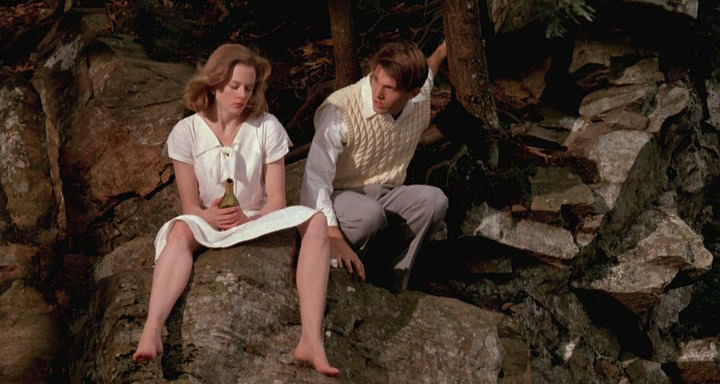A picnic in the woods is a novelty for Billy Bathgate, a fifteen-year-old New York City boy who has never walked on anything but pavement. So, when Drew Preston, a worldly woman of twenty-one, says,” Let’s go for a picnic….” Billy is flummoxed. He has no choice but to go on because Preston is the mistress of crime boss Dutch Schultz, and Billy is Schultz’s protégé.
Attracted to Preston’s beauty, Billy trails behind her so that he can ogle her unobserved. But he is also in awe of being on a logging trail deep in the woods. (Billy is streetwise but not about maps.) “We were at the edge of a great sunlit gorge of falling water, falling so thick it was white and thunderous breaking on tumblings of boulders all the way down,” he says. “This was where she chose to have the picnic, seated on with our legs hanging over the root-tangled and mossy banks into thin air, as if she had known all along the place was here and exactly where to find it.”
The episode is a chapter in Billy’s worldly education. It’s also when he falls in love with Preston, a dangerous condition because of Schultz’s jealousy and murderous temperament. It’s Doctorow’s pun that Billy falls for Preston when she climbs into the gorge and disappears into the mist above swirling water. Fearing she’s suicidal, Billy follows and finds her swimming in a black pool at the falls’ base. When she emerges naked, he shyly helps to dry her body.
Doctorow’s picnic lunch is chicken salad sandwiches, fruit, napoleons, and New York State red wine (with a crew cap).
On the way back from the momentous picnic, Billy realizes that what Preston symbolizes is “not a universe of love” but a “large empty resounding adulthood booming with terror.” Nevertheless, he has more than lust in his heart for her.
Featured Image: Drew Preston (Nicole Kidman) and Billy Bathgate (Loren Dean). Robert Benton’s Billy Bathgate (1989)
See E. L. Doctorow’s Billy Bathgate: A Novel. New York: Random House, 1989; Robert Benton. Billy Bathgate (1991). Screenplay by Tom Stoppard based on E.L. Doctorow’s novel (1991); Janice Stewart Heber. “The X-Factor in E. L. Doctorow’s Billy Bathgate: Powerless Women and History as Myth.” Modern Language Studies 22, no. 4 (1992); Minako Baba. “The Young Gangster as Mythic American Hero: E. L. Doctorow’s Billy Bathgate.” Melus: Varieties of Ethnic Criticism (1993)

